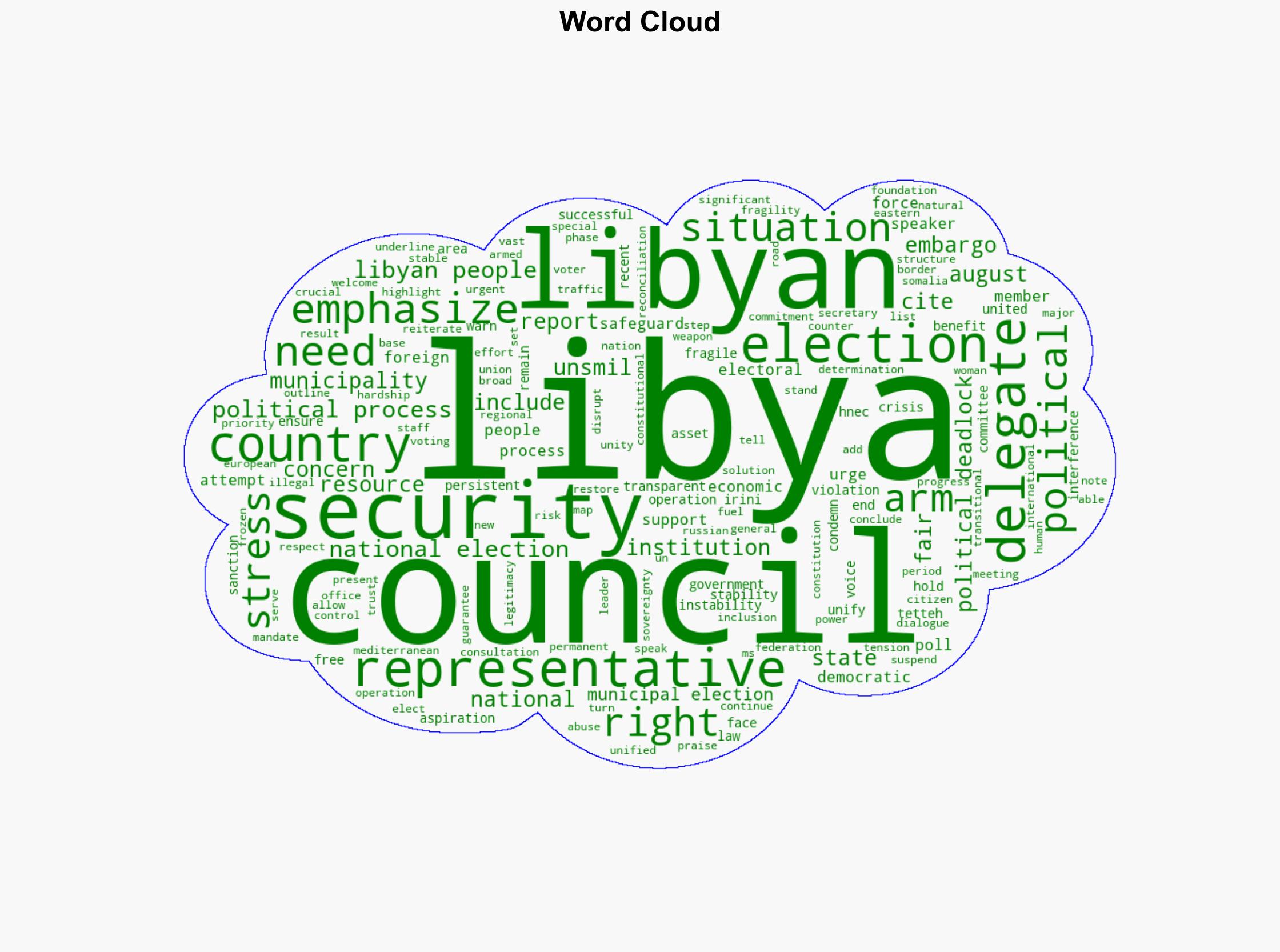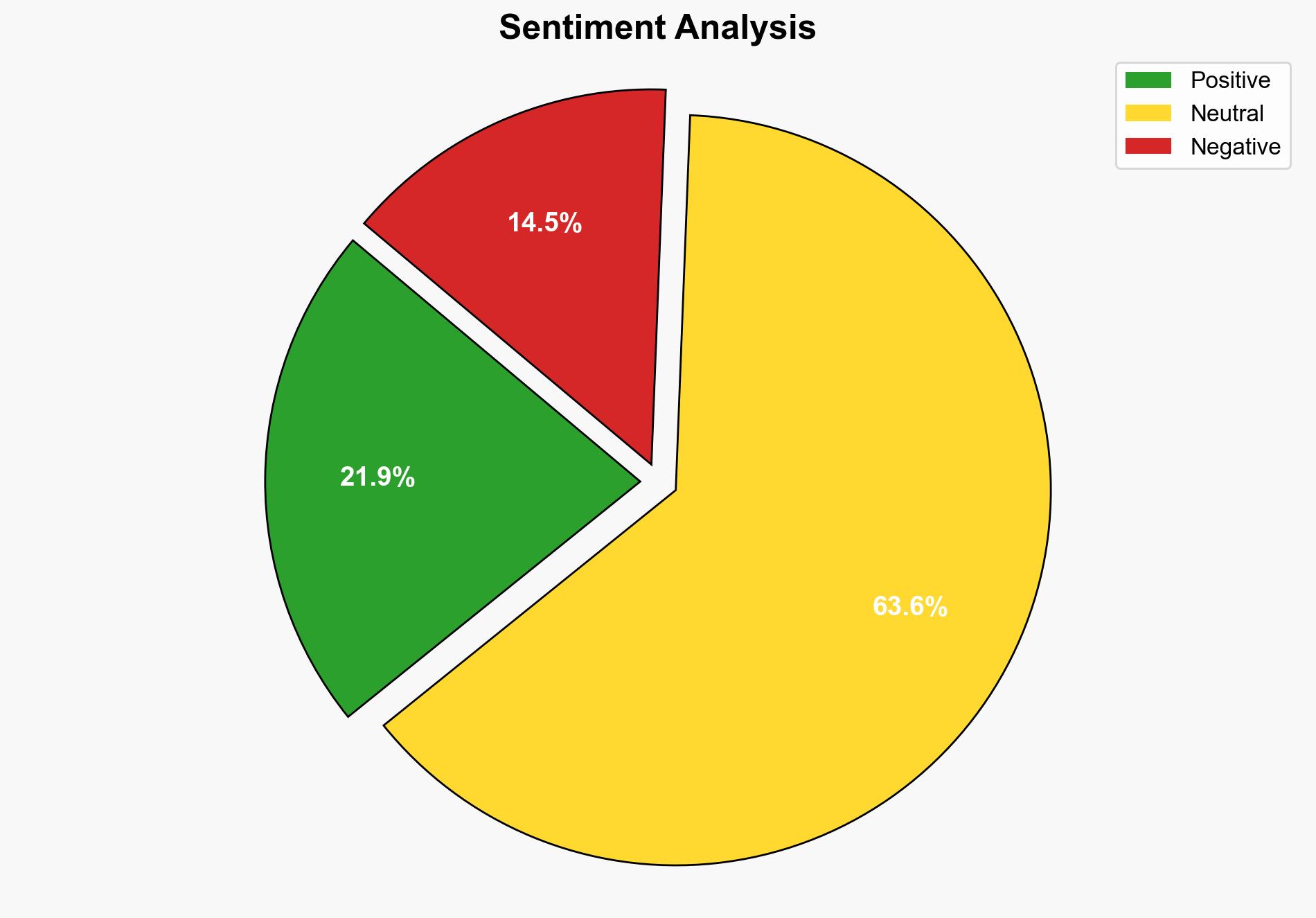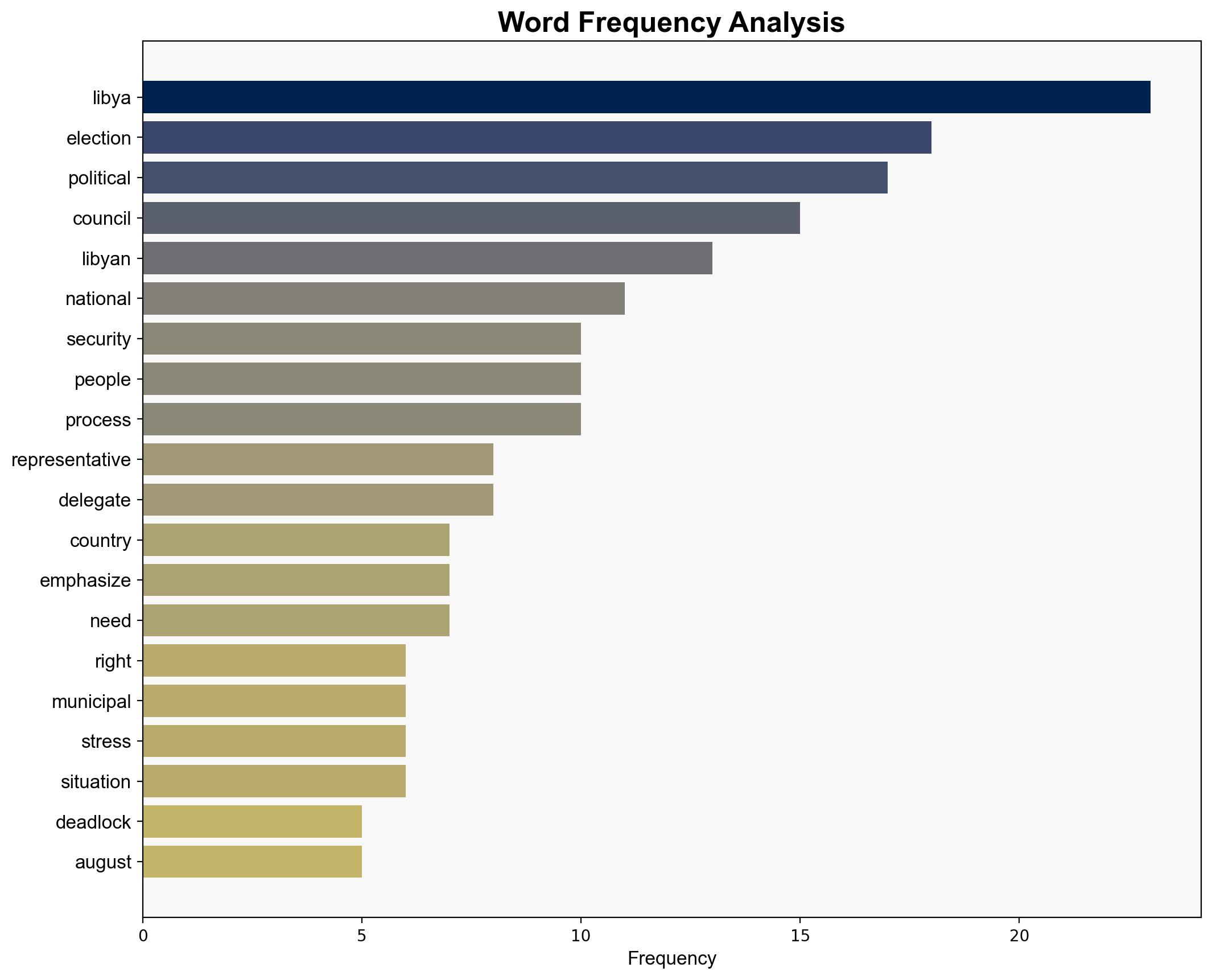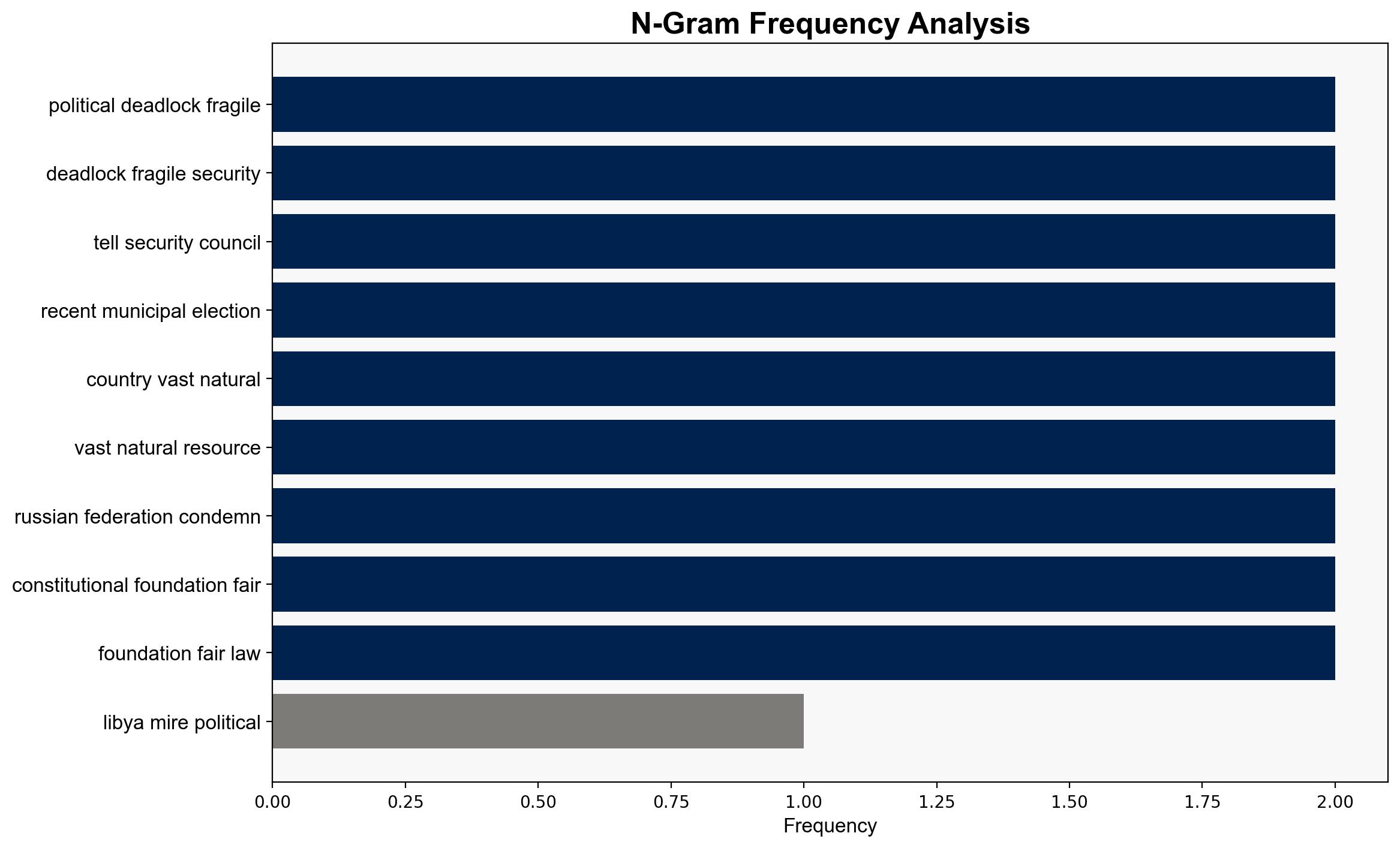Libya Still Mired in Political Deadlock Fragile Security Special Representative Tells Security Council Outlining Road Map towards Successful National Elections – Globalsecurity.org
Published on: 2025-08-22
Intelligence Report: Libya Still Mired in Political Deadlock Fragile Security Special Representative Tells Security Council Outlining Road Map towards Successful National Elections – Globalsecurity.org
1. BLUF (Bottom Line Up Front)
Libya remains entrenched in political deadlock and fragile security, despite efforts to organize national elections. The most supported hypothesis suggests that external and internal disruptions will continue to impede the electoral process, necessitating robust international mediation and support. Confidence level: Moderate. Recommended action includes enhancing international diplomatic efforts and providing security assistance to stabilize the electoral environment.
2. Competing Hypotheses
1. **Hypothesis A**: Libya’s political deadlock and security challenges will persist, preventing successful national elections without significant international intervention.
2. **Hypothesis B**: Libya will overcome its current political and security challenges, leading to successful national elections through internal consensus and reform efforts.
Using ACH 2.0, Hypothesis A is better supported due to the ongoing disruptions, such as arson attacks and the suspension of voting in key areas, which indicate a lack of internal capacity to resolve these issues independently.
3. Key Assumptions and Red Flags
– **Assumptions**: Hypothesis A assumes that internal factions lack the capability or willingness to reach consensus without external pressure. Hypothesis B assumes that Libyan stakeholders can unify and reform electoral processes independently.
– **Red Flags**: The deliberate attempts to disrupt elections and the persistent economic hardship suggest potential underestimation of the influence of armed groups and political factions.
– **Blind Spots**: The role of external actors, such as regional powers, in influencing Libya’s political landscape is not fully addressed.
4. Implications and Strategic Risks
– **Political**: Continued deadlock may lead to further fragmentation and loss of public trust in governance.
– **Security**: Persistent instability could exacerbate regional security threats, including terrorism and arms trafficking.
– **Economic**: Economic hardship may worsen, fueling public discontent and potential unrest.
– **Geopolitical**: Failure to stabilize Libya could impact regional alliances and international relations, particularly concerning migration and energy security.
5. Recommendations and Outlook
- Enhance diplomatic engagement with Libyan factions to foster dialogue and consensus-building.
- Provide targeted security assistance to protect electoral processes and infrastructure.
- Best Case: Successful elections lead to a unified government and improved stability.
- Worst Case: Escalation of violence and further political fragmentation.
- Most Likely: Prolonged deadlock with intermittent progress towards elections.
6. Key Individuals and Entities
– Hanna Serwaa Tetteh
– High National Election Commission (HNEC)
– United Nations Support Mission in Libya (UNSMIL)
7. Thematic Tags
national security threats, cybersecurity, counter-terrorism, regional focus




